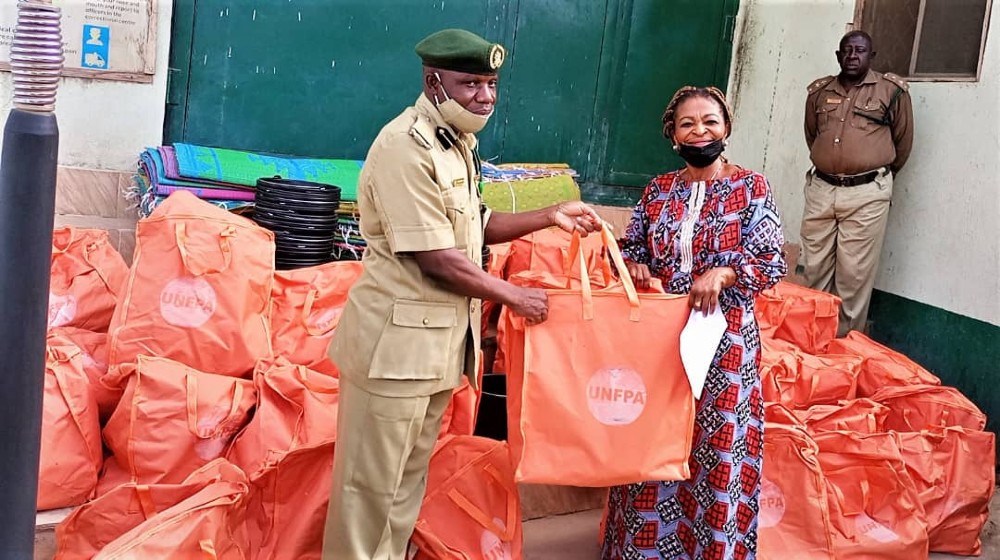On 29 June 2021, UNODC consultant Mrs. Ugonna Ezekwem, former magistrate and long-serving former UNODC staff, visited the Kano Medium Security Custodial Center to conduct interviews with select prisoners for an ongoing UNODC study on organized crime. While identifying suitable interviewees, Ugonna came across a young female prisoner who told her about the difficult conditions she and her 46 fellow inmates were facing concerning their personal hygiene and self-care - no access to soap, sanitary towels, and other necessities.
Disturbed by these reports, Ugonna informed UNODC management who in turn contacted the United Nations Population Fund (UNFPA). UNFPA has been supporting vulnerable women and girls across Nigeria, including those living in refugee and IDP camps. In that context, UNFPA’s support includes the provision of Dignity Kits, which provide women and girls with a range of products specifically designed to address their hygiene needs as well as challenges to resupply themselves, like for example washable and reusable sanitary pads. Within less than 48 hours, UNFPA mobilized 50 such kits and deployed them to the prison where they were distributed under the cheers of the women prisoners.
The distribution of the Dignity Kits to the Women of Kano Medium Security Custodial Center was more than an ad-hoc humanitarian intervention. It also constituted very practical assistance to the Nigeria Correctional Service in their effort to comply with the United Nations Standard Minimum Rules for the Treatment of Prisoners, better known as the Nelson Mandela Rules, as well as the United Nations Rules for the Treatment of Women Prisoners and Non-custodial Measures for Women Offenders (the Bangkok Rules) which together constitute the body of soft law that should be guiding how men and women around the world are treated when imprisoned. These rules stipulate, inter alia, that:
The sanitary installations shall be adequate to enable every prisoner to comply with the needs of nature when necessary and cleanly and decently.
Adequate bathing and shower installations shall be provided so that every prisoner can, and may be required to, have a bath or shower, at a temperature suitable to the climate, as frequently as necessary for general hygiene according to season and geographical region, but at least once a week in a temperate climate.
The accommodation of women prisoners shall have facilities and materials required to meet women’s specific hygiene needs, including sanitary towels, provided free of charge and a regular supply of water to be made available for the personal care of children and women, in particular, women involved in cooking and those who are pregnant, breastfeeding or menstruating

